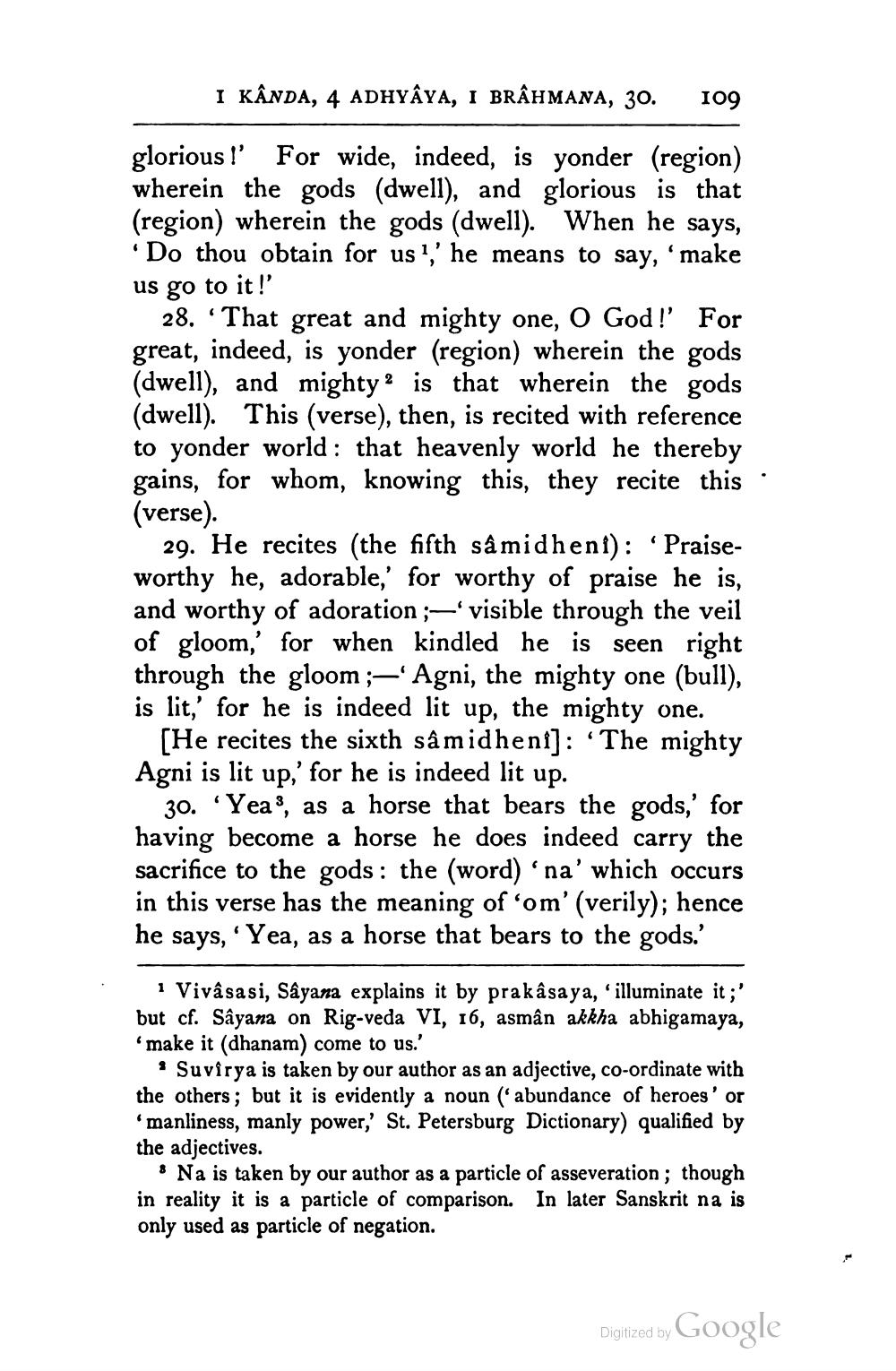________________
I KÂNDA, 4 ADHYÂYA, I BRÂHMANA, 30.
109
glorious! For wide, indeed, is yonder (region) wherein the gods (dwell), and glorious is that (region) wherein the gods (dwell). When he says, “Do thou obtain for us?,' he means to say, 'make us go to it!'
28. “That great and mighty one, O God!' For great, indeed, is yonder (region) wherein the gods (dwell), and mighty? is that wherein the gods (dwell). This (verse), then, is recited with reference to yonder world : that heavenly world he thereby gains, for whom, knowing this, they recite this. (verse)
29. He recites (the fifth sâmidheni): Praiseworthy he, adorable,' for worthy of praise he is, and worthy of adoration ;-' visible through the veil of gloom,' for when kindled he is seen right through the gloom ;-'Agni, the mighty one (bull), is lit,' for he is indeed lit up, the mighty one.
[He recites the sixth sâmidheni]: 'The mighty Agni is lit up,' for he is indeed lit up.
30. Yea?, as a horse that bears the gods,' for having become a horse he does indeed carry the sacrifice to the gods: the (word) 'na' which occurs in this verse has the meaning of 'om' (verily); hence he says, Yea, as a horse that bears to the gods.'
i Vivâsasi, Sayana explains it by prakasaya, illuminate it ;' but cf. Sâyana on Rig-veda VI, 16, asmân akkha abhigamaya, make it (dhanam) come to us.'
* Suvirya is taken by our author as an adjective, co-ordinate with the others; but it is evidently a noun abundance of heroes' or 'manliness, manly power,' St. Petersburg Dictionary) qualified by the adjectives.
3 Na is taken by our author as a particle of asseveration; though in reality it is a particle of comparison. In later Sanskrit na is only used as particle of negation.
Digitized by Google




